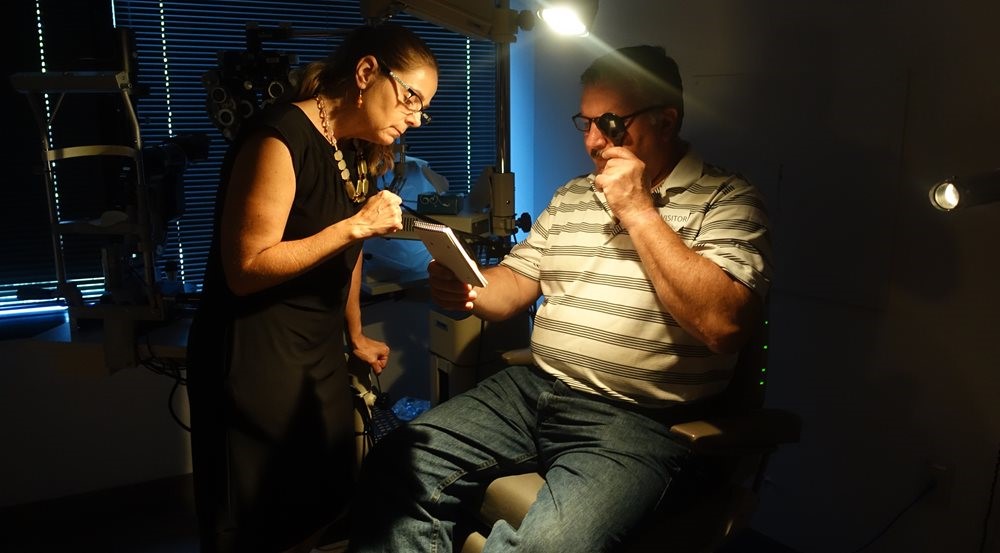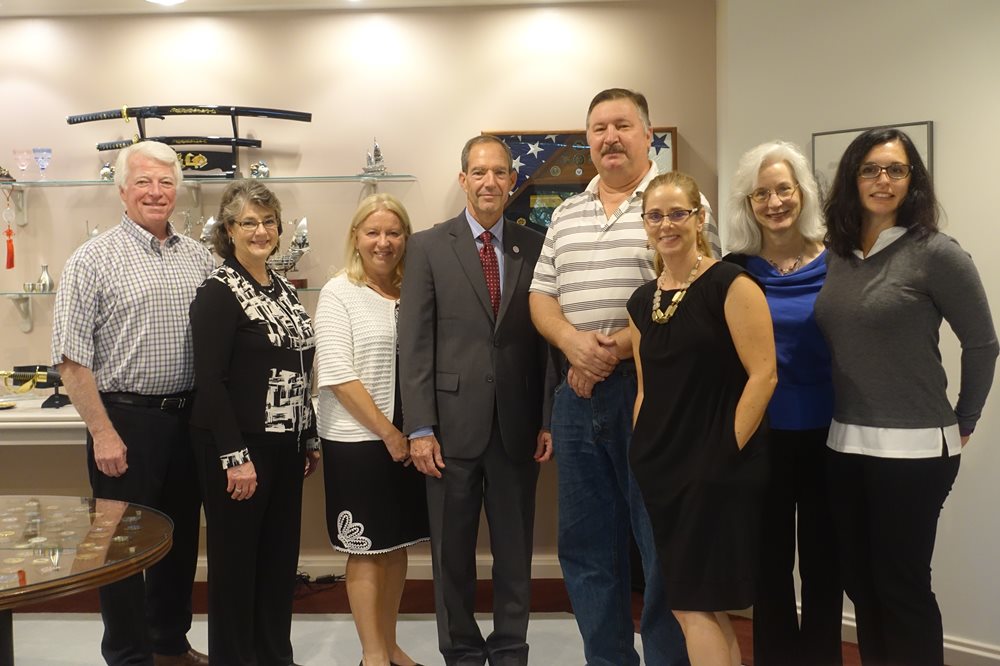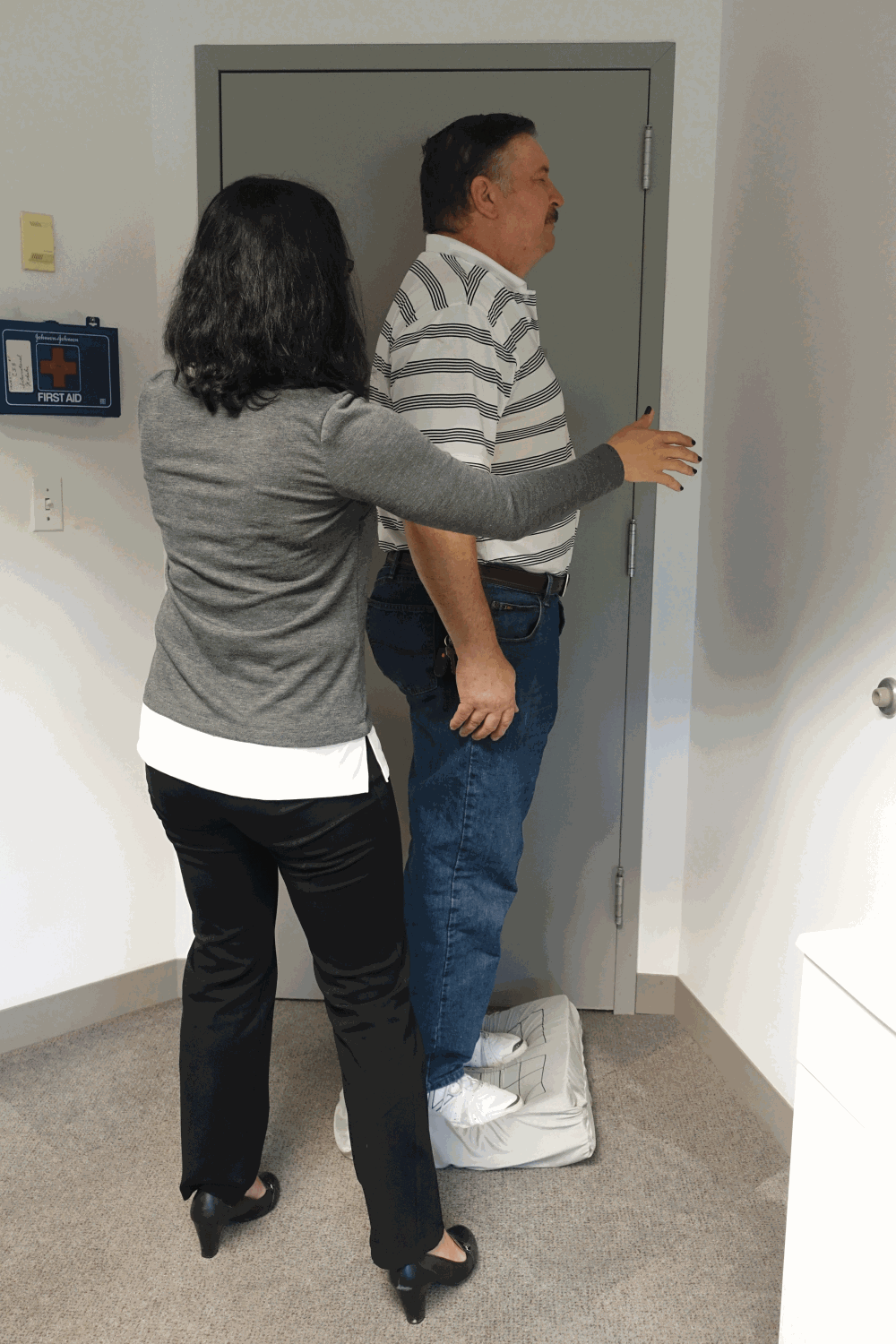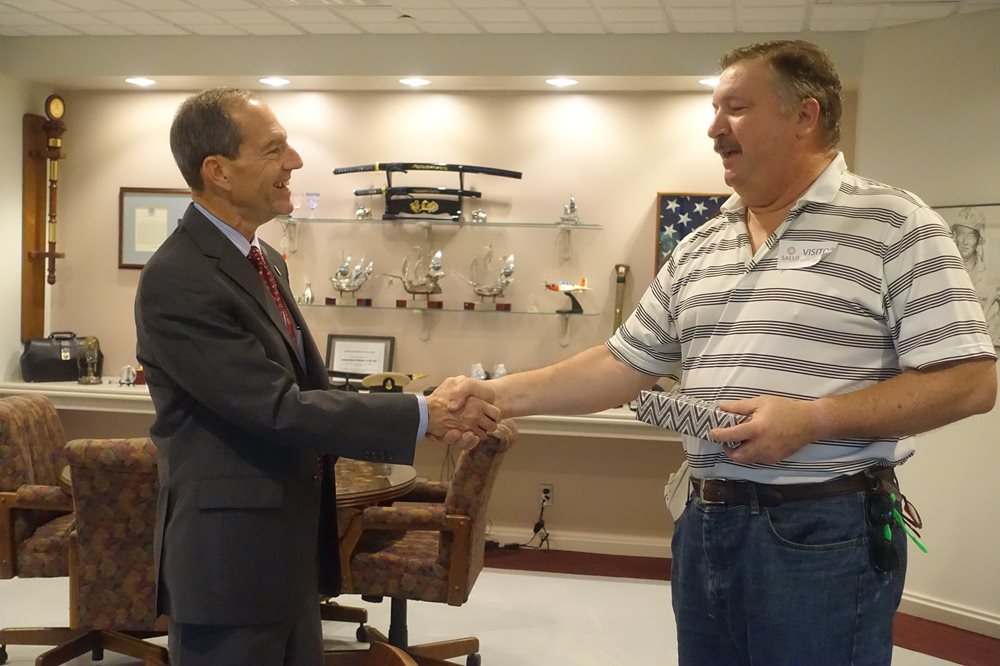
Hearing Vision Balance Clinic Services First Patient in Conjunction with Veterans Readiness Initiative
The Hearing Vision Balance Clinic (HVBC), the latest, integrated multidisciplinary care offered through Salus University’s clinical facilities, serviced its first patient, Stephen Bachovin recently. The U.S. Air Force veteran and Coordinator of Veterans Programming at Community College of Philadelphia’s Veterans Resource Office, received joint care from Lynn Greenspan, OD and Bre Myers, AuD for his hearing, balance and vision needs.

The HBVC was established as the clinical practice for Salus University’s Veterans Readiness Initiative (VRI). VRI was developed in 2015 as a joint effort between Salus University’s Osborne College of Audiology and Pennsylvania College of Optometry, with external partners Corporal Michael J. Crescenz VA Medical Center Rehabilitation Medicine Services, and Veterans Resource Centers at Community College of Philadelphia and Montgomery County Community College. VRI provides community screening events to veterans to identify potential vision, auditory or vestibular issues. If problems are detected during the screening, or if a comprehensive exam is needed, they are referred to Salus’ HVBC.

The HVBC allows veterans to have a one-stop-shop for healthcare services rather than having to make multiple, separate trips for appointments. Each veteran is interviewed by a Doctor of Optometry and a Doctor of Audiology to address any vision, hearing or balance deficits and to gather a medical history. The doctors perform optical, auditory and vestibular tests in order to accurately and effectively treat conditions.
Dr. Karen Hanson, special consultant for program development at Salus University, explains the benefits of coordinated care through HVBC.
“We have them seeing two providers at once,” she said. “It’s efficient and saves the veteran time, but they also get a better diagnosis and care plan because vision, hearing and balance are very connected. It’s a very holistic, integrated practice.”
Some of the most common eye, hearing and balance issues veterans may experience are: blurred or double vision, eye strain, pulling or tugging in and around the eyes, hearing loss, tinnitus (ringing in the ears) and balance/coordination problems because of blast or blunt-force trauma, according to Drs. Greenspan and Myers.
At the end of his visit, a special reception was held for Bachovin by Dr. Michael Mittelman, president of Salus University. Dr. Mittelman thanked Bachovin for his participation in HVBC and his service to the United States.

Veterans interested in receiving care from HVBC can contact Hanson at khanson@salus.edu or 215.780.1532.